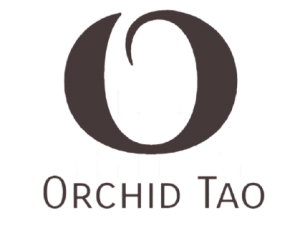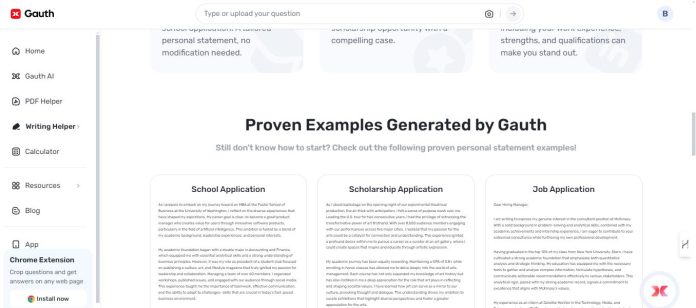A turning point in your academic path might be applying for research-based programs. Presenting your research interests, academic capabilities, and possible program contributions depends on an efficient personal statement. Emphasizing your academic successes, work experiences, and long-term aspirations, this paper offers you the chance to share your narrative.
Writing a personal statement requires you to clearly tell a story that fits the program you are applying for. Using tools like Gauth’s personal statement maker will assist in simplifying the process by giving structure and direction and guaranteeing that your statement stays original and reflects your individuality. Gauth’s platform provides customized templates and specifications to suit a broad range of study subjects and specialties. Using these tools will help you to concentrate on what really counts: presenting your research skills and enthusiasm to possible superiors.
Clarifying the Goals of a Personal Statement
A personal statement goes beyond a mere recitation of your resume or CV. This is a story about why you are following a research-based program and how your history, hobbies, and future ambitions fit the aims of the program. Here are the key ideas to keep in mind when developing a solid personal statement:
Start with an excellent introduction
The tone of the whole personal statement is established in the beginning. Talk first about your areas of research interests and the reasons you are driven to work in this specific sector. A strong introduction will attract their interest and show them your enthusiasm and careful approach toward your study objectives.
Emphasize pertinent intellectual achievements
Be careful to highlight any pertinent courses, research projects, or academic successes that have equipped you for this program, as admissions committees want proof of your academic ability. Link these events directly to the study you want to do.
Highlight your experience with research
Programs grounded in research provide applicants with practical knowledge as a top priority. Whether you have worked on a lab project, internship, or research project, stress your involvement in these activities, the skills you have acquired, and how these events affected your academic path.
Show consistency with the program
You should clearly describe why you are applying to this particular program and how it will complement your long-term study objectives. Talk about certain faculty members you would like to collaborate with, research institutes you value, or specialty courses drawing you to the university.
Share Your Long-Term Employment Objectives
Apart from reflecting on your present academic and research interests, a personal statement should also reveal your future aspirations. Clearly state how the program will enable you to reach your objectives, whether they be those of a professor, employment at a specialized research institution, or policy-making contribution.
Reflect on Your Personal Qualities
Apart from academic skills, personal qualities such as perseverance, creativity, and teamwork are equally important in research. Reflect on moments where you demonstrated these traits in both academic and non-academic settings, showing how they will benefit your research journey.
Conclude by Reinforcing Your Commitment
End your statement by reinforcing your commitment to both the program and your field of research. A firm conclusion leaves a lasting impression and ties your narrative together.
Conclusion
In summary, writing a personal statement for a research-based program requires a clear articulation of your academic journey, research experience, and future ambitions. By following the steps outlined above and using resources like Gauth’s personal statement maker, you can create a compelling narrative that resonates with admissions committees.




